Dogs have impressive teeth, inherited from their ancestors, the wolves. However, many dogs today have problems with tartar, plaque, bad breath, and inflamed gums. Unlike wolves, dogs seem to be more susceptible to these problems, as wolves only develop a little tartar, if any, in old age. Well, where humans have had a hand in it, things have rarely turned out well for animals.
Unfortunately, unsuitable food and chewing materials, overbreeding and small-breeding, and humanization are the main reasons. Fortunately, there is now a consensus that dental care is important for dogs as well. But unfortunately, not all dog owners know how to do it properly. They continue to listen to the recommendations of friends, breeders, veterinarians, and pet food industry advertisements, giving their dogs so-called Dentasticks full of additives and actually believing that discount food is healthy and that dry food cleans teeth.
“Strange people,” a dog would say now. “Why don’t they learn what’s good for me? I’m a family member, and it can’t be too much to ask that I read a book on the subject. But they don’t have time for that. Opening a bag and tipping strange morsels into the bowl is so convenient. If only they’d read the label, but even if they did, they wouldn’t understand it. And then I have to eat it, too. Even a blind person can see that something like that can’t have anything to do with nutrition. Well, and then I got tartar.”
Why should you care for your dog’s teeth?
Many dog owners wonder why they should care for their four-legged friend’s dental care. After all, a wild wolf doesn’t need a dental cleaning, right? That’s not true, though. Wolves also need dental cleaning, but nature has built tartar prevention into their dogs. But in dogs, it no longer works, and humans are to blame.
For centuries, dog breeding has placed less emphasis on healthy teeth than on external characteristics such as coat. Furthermore, some breeds were bred to be unnaturally small, resulting in teeth that are far too close together. Other factors that can lead to dental problems in dogs are clearly food and chewing materials.
Unlike a wolf, which devours its prey whole, skin and hair, thus naturally preventing tartar buildup, today’s dog food is often not optimal for dental health. Ingredients such as hidden grains and sugar (grain- and sugar-free doesn’t mean it isn’t present) can promote plaque and attract harmful oral bacteria, which can ultimately lead to tartar. Furthermore, standard dog food offers little opportunity for manual cleaning of the teeth. Your dog, your responsibility, and tartar, unfortunately, is self-inflicted in 90% of cases.
How does tartar develop in dogs?
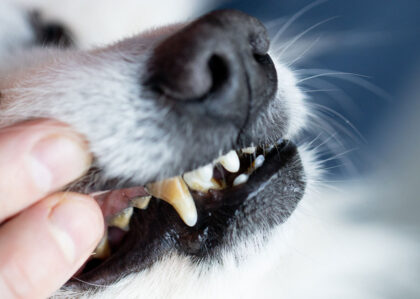 Tartar in dogs is caused by a combination of factors. During eating, food components, mixed with saliva and bacteria found in the mouth, form plaque on the teeth. The bacteria in these deposits produce acids that attack tooth enamel and foul-smelling gases that lead to bad breath.
Tartar in dogs is caused by a combination of factors. During eating, food components, mixed with saliva and bacteria found in the mouth, form plaque on the teeth. The bacteria in these deposits produce acids that attack tooth enamel and foul-smelling gases that lead to bad breath.
Over time, these deposits harden due to the mineral components of saliva, forming hard, brownish tartar that cannot be removed even with a toothbrush. Certain dog breeds, such as Chihuahuas, Poodles, Dachshunds, Pugs, and Shih Tzus, are more susceptible to tartar buildup than others due to their narrow jaws and closely spaced teeth, which are a result of breeding. Nature did not intend it this way.
If you happen to have one of these tiny dogs and certainly love it very much, these breeds would not exist in nature, as they would barely be able to survive. Humans have had a hand in this. Breed-specific problems such as increased tartar, patella luxation, joint, vertebral, and intervertebral disc problems are just some of the possible consequences that breeds bred primarily to human specifications have to deal with today. This makes the responsibility to ensure their well-being in a species-appropriate manner all the greater on the shoulders of their owners.
What does the term “species-appropriate” mean?
The term “species-appropriate” refers to the care and feeding of dogs in a way that corresponds to their natural needs and instincts.Appropriate husbandry means that the dog’s living environment meets its natural behavioral needs and requirements. This includes sufficient opportunities for exercise, access to fresh air and sunlight, appropriate social contact with other dogs, the fulfillment of breed-specific instincts, and safe and comfortable accommodation.
Appropriate nutrition for dogs is about providing them with food that meets their biological requirements. Dogs are only about 70% carnivores and need a balanced diet. A species-appropriate diet usually includes a basic mix of muscle meat, heart, lungs, stomach, offal, tendons, cartilage, skin and fur, bones, vegetables, fruit, berries, herbs, nuts, eggs, and fats. It is important to choose high-quality, natural ingredients and, above all, to avoid industrial wet and dry food with artificial additives, preservatives, attractants, flavors, and colorings. Unfortunately, very few people know how to correctly interpret a label, nor what a correct declaration of meat and other ingredients should look like, nor that free of sugar, grains, and artificial additives does not necessarily mean that these are not included. Behind this, however, lies a system of the feed industry that refers to feed law, which has little to do with food law. For example, a food only needs 4% meat to be marketed as a complete feed—so much for feed law.
Species-appropriate husbandry and nutrition aim to promote the well-being and health of the dog by meeting its physiological and psychological needs. Learning this is the responsibility of the human to the dog. If this cannot be met, species-appropriate and healthy husbandry is hardly possible.
I assume that every reader will agree with this. But what is the reality? Unfortunately, it is often different. Industrially manufactured wet or dry food, often from discount stores or the usual (online) snack bars for dogs, too little exercise, minimal mental stimulation, social interaction, and humanization are commonplace and lead not only to illness but also to behavioral problems.
The dog pees with joy, barks at strangers, or yelps at every little thing, doesn’t get along with other dogs, jumps up at you like a circus dog, and is then trained to have its teeth brushed. Proper dog care has nothing to do with circus lessons.
The possible consequences of tartar
In addition to frequent bad breath, inflammation of the neck of the tooth can accumulate and lead to chronically inflamed and bleeding gums. This, in turn, can lead to receding gums, pain when eating, refusal to eat, and loosening or even loss of teeth. In the worst case, germs and bacteria from the mouth enter the body via the bloodstream and infect other parts of the body. This can lead to heart, kidney, and liver damage, for example. Therefore, it is important to remove tartar.
Can the vet help with tartar?
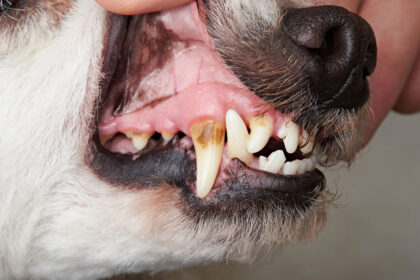 A dental cleaning at the vet can be a solution. Dogs usually react very stressed to the unpleasant treatment, which is why general anesthesia is necessary to prevent panic reactions and injuries to the dog and the veterinarian due to resistance.
A dental cleaning at the vet can be a solution. Dogs usually react very stressed to the unpleasant treatment, which is why general anesthesia is necessary to prevent panic reactions and injuries to the dog and the veterinarian due to resistance.
However, you should consider whether to undergo general anesthesia solely for a dental cleaning. Many dog owners consider this excessive, as the risk can be increased, especially for very small, pre-existing, or older dogs.
The costs should not be underestimated either. Calculated at the single rate, it starts at around €250, but this can quickly rise to around €450. Dental cleaning at the vet is also rarely long-lasting. Fortunately, there are some very good veterinarians, but you have to find them first! Therefore, many dog owners are looking for alternatives that are gentle on the dog and the wallet.
A look at possible causes and prerequisites
 Before considering an alternative method, it is important to feed the dog properly and give it suitable and natural chewing material. This is essential to a naturalNatural dental care only works if the entire chain is natural and species-appropriate. That’s a prerequisite! A pill in the food and plaque disappears like an annoying headache—no, that doesn’t exist.
Before considering an alternative method, it is important to feed the dog properly and give it suitable and natural chewing material. This is essential to a naturalNatural dental care only works if the entire chain is natural and species-appropriate. That’s a prerequisite! A pill in the food and plaque disappears like an annoying headache—no, that doesn’t exist.
But why do so many people still feed such foods? The answer is simple: It’s convenient to open the bag and pour the strange lumps into the bowl. Cans are just as practical, and they all keep beautifully long (why, I wonder?). Many dog owners also believe that the food is good because the manufacturers “promise” it in their advertisements. There are only a few exceptions, and very few dog owners know about them, because small, responsible manufacturers can’t compete with the millions of dollars spent on advertising by large corporations. But good foods do exist! Nevertheless, even good wet foods from cans remain ready-made foods and should be regularly enhanced with fresh ingredients.
Book tip: “Dogs would live longer if…” by Dr. med. vet. Ziegler. This book is, so to speak, a driver’s license for all dog owners, providing information in a way that is understandable to laypeople about how dogs should be fed, how many veterinarians and the pet food and pharmaceutical industries work hand in hand, and, above all, how such food is actually produced.
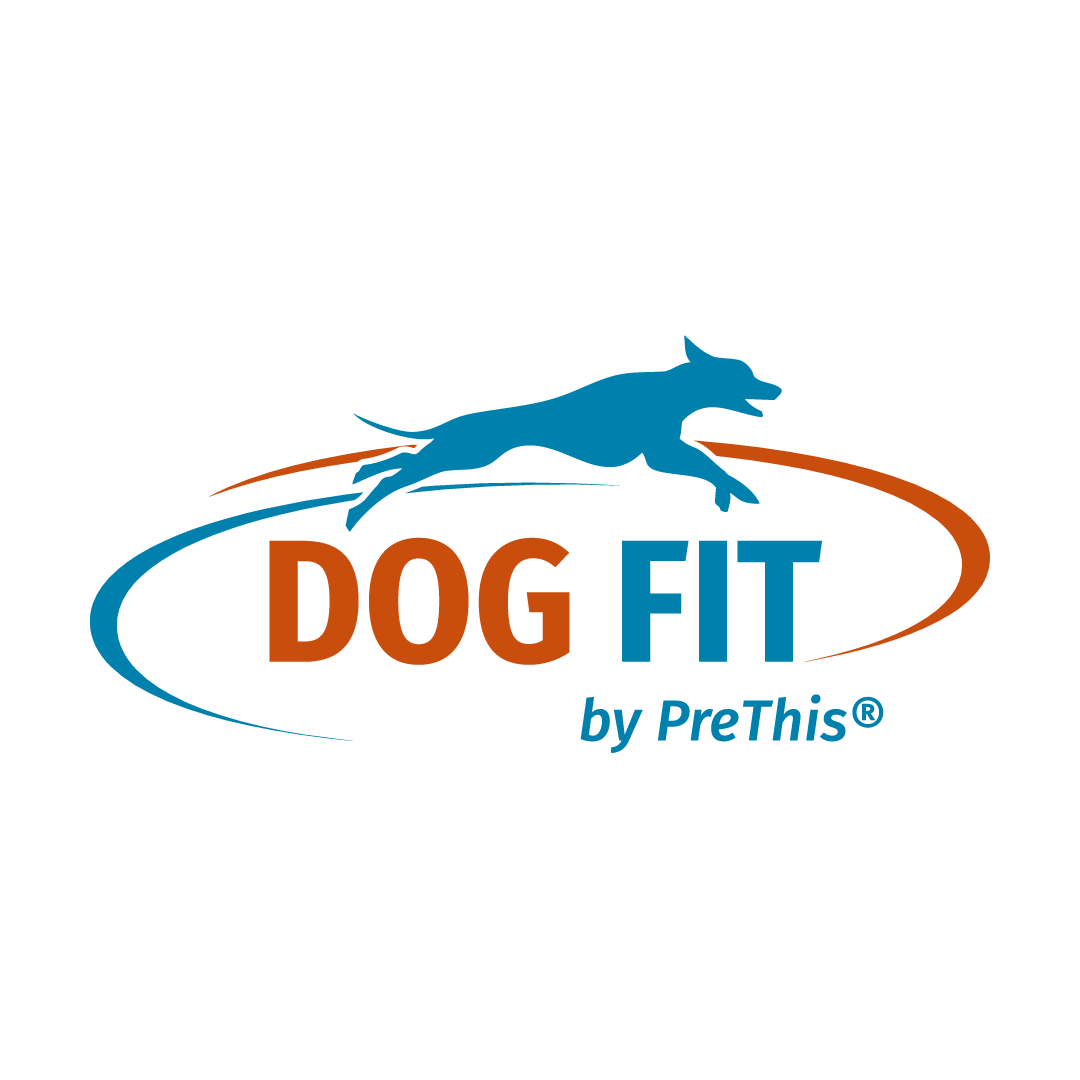
The content of the articles is for general information purposes only and does not replace diagnosis or treatment by a veterinarian. Reviews or testimonials are individual reports from verified customers. This information does not constitute medical advice and should not be understood as such.
Our daily inspiration comes from the special moments with our dogs. Here we share this enthusiasm and invite you to become part of the DOG FIT community on our social media channels.
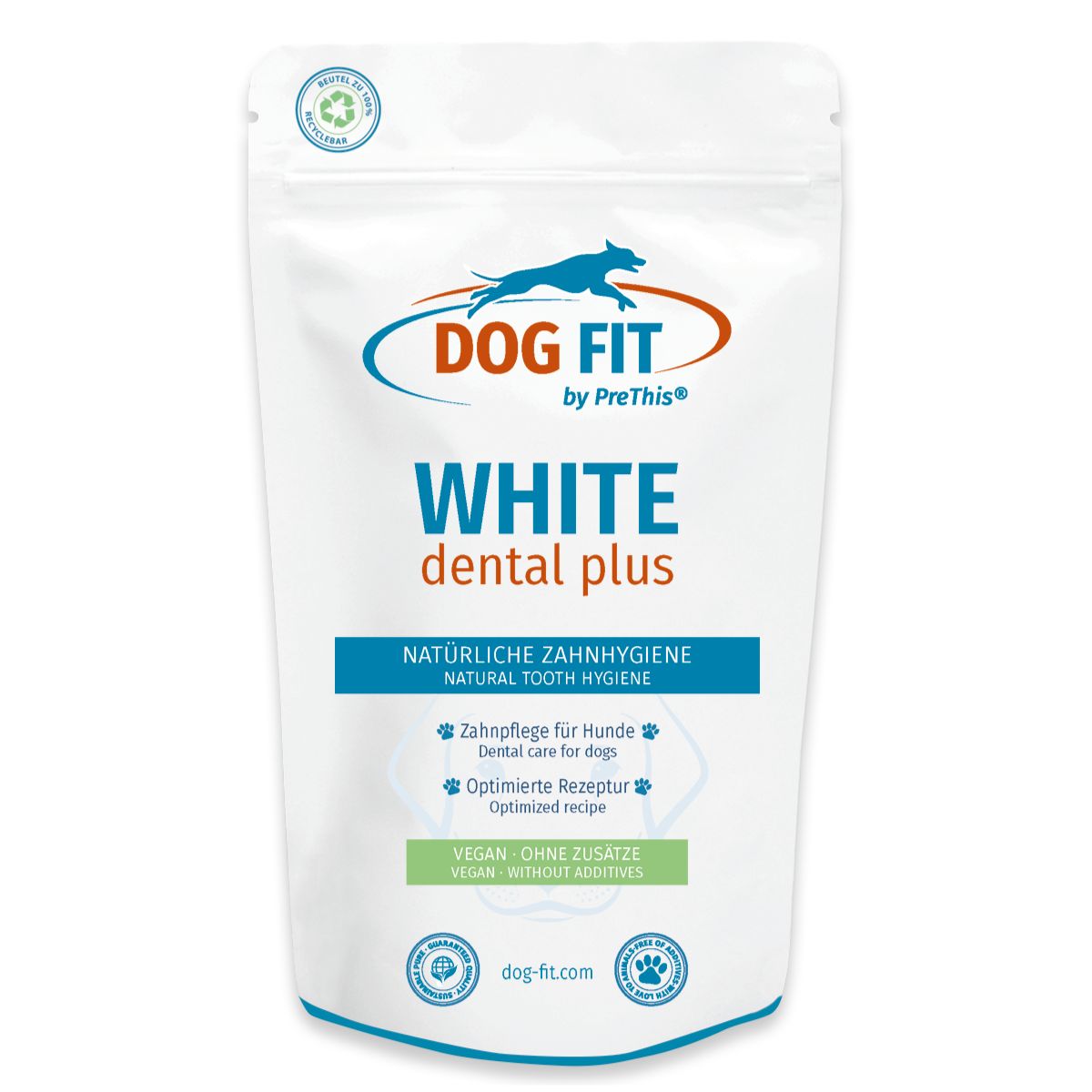

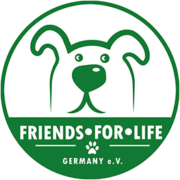
Leave a Reply